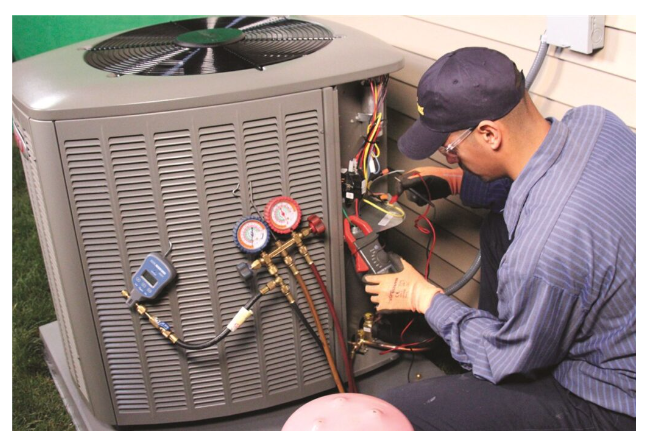Common Misconceptions About Health Insurance in India
When Raj, a 25-year-old working with a private firm in Mumbai, was told by his father to take a health insurance plan, he didn’t pay much attention. He felt a young and healthy person like him doesn’t need it. A month later, Raj fell ill and had to be admitted to a hospital, resulting in bills running in lakhs. The fat hospital bill depleted Raj’s savings in no time, and he realised the value of his father’s advice.
Raj is among the many of us who feel they don’t need health insurance if they are young and healthy. This misconception, along with many, continues to plague Indians who view health insurance as an unnecessary expense. What are the other misconceptions surrounding health insurance in India? Let’s find out.
- People With Pre-Existing Diseases Need Health Insurance
You can’t be more wrong. In fact, everybody should buy a health insurance plan for themselves and their families. Medical emergencies often knock on your doors without prior intimation and can land you in a soup. Given the modern lifestyle, most of us lead, a health contingency can occur suddenly. Hospitalisation in private clinics for a week can deplete your savings quickly.
Buying health insurance is better whether you’ve pre-existing ailments or not. It’s wise to buy it early as premiums rise with age. Also, when you purchase a health insurance plan early, there are less chances of pre-existing ailments, which expedites policy issuance.
- It’s Better to Hide My Lifestyle Habits While Buying Health Insurance
When you buy a health insurance policy, you require disclosing your lifestyle habits to the insurer. This makes many uncomfortable. In a bid to get their policy issued hassle-free, people often don’t report their habits in the proposal form. This can be costly and cause significant hassle during claim settlement.
If your insurer finds out about any such fact when you make a claim, it can outrightly reject it. If you smoke or drink, mention the same in the proposal form. While it will increase premiums, your claim will not be denied when needed. Equally essential is to disclose any pre-existing ailments you have in the proposal form. This honesty goes a long way during claim settlement.
- I Don’t Need Health Insurance as I’m Covered Under Corporate Insurance
Several companies offer medical coverage to their employees under group health plans. While group health plans help offset medical expenses, you must also buy an individual health insurance plan. Coverage for group health plans applies until you are employed with the company. It ceases to exist once you leave.
In case of hospitalisation, when you are not an employee of any company, your individual health insurance plan comes to your rescue. It helps you lessen the financial burden to a great extent.
- I Don’t Need to Review My Health Coverage
Many people keep their insurance coverage static for several years. They feel a sum insured opted ten years ago is enough today. However, it’s not the case. Medical inflation is rising at a fast clip and is higher than consumer inflation. This makes it imperative to review your health coverage every couple of years.
Periodic review is also essential during life events such as marriage, childbirth, etc. In such events, you need to enhance coverage. While buying a separate health plan may not be feasible, you can boost the sum insured by opting for a top-up or super top-up health insurance plan. They are a cost-effective way to boost health coverage.
- Health Insurance for Senior Citizens are Non-existent
It’s a myth that health insurance plans for senior citizens are not available. While it’s true that senior citizens may find it challenging to get the required coverage due to their age and pre-existing ailments, there are dedicated policies for them in the market. These policies serve the specific needs of seniors.
Though they command a higher premium, they offer decent coverage to seniors. If you cannot add your senior citizen parents to your policy, you can buy a tailor-made policy for them.
- Health Insurance Will Provide Coverage Immediately After Purchase
While health insurance offers coverage during the policy tenure, it doesn’t start immediately. Every policy has a waiting period during which you cannot receive coverage. The waiting period is generally 30 days from the date of purchase, except for accidents. That’s not all.
Specific ailments such as hernia, cataract, orthopaedic diseases, etc., can have a waiting period ranging from two to three years. It means you will not get coverage for expenses incurred on them for the said duration. While buying a health insurance plan, know the waiting period, as it will help you make alternative arrangements.
- Buying Health Insurance is All About Paying Premiums for a Policy
While premium payment is essential to the buying journey, it’s not everything. You must keep several other things while buying a health insurance plan. These include:
- Comparing plans from multiple insurers
- Closely looking at the policy’s terms and conditions, including inclusions and exclusions, co-pay and sub-limit clauses, the network of hospitals, the insurer’s claim settlement ratio, etc.
Ensure you know every aspect of your policy to avoid surprises later. If you need clarification, get it from your insurer as soon as possible. Go through the policy once you receive it to ensure everything is in order. If you find any discrepancy, bring it immediately to your insurer’s notice.
Note that most health insurance plans come with a 15-day free look-in period during which you can cancel your policy if it doesn’t meet your requirements.
In Conclusion
Though health insurance penetration in India has increased, much remains to be done. Overcoming the above misconceptions goes a long way in buying a health insurance plan tailored to your needs. It’s one of the best decisions you can make for yourself and your family.


